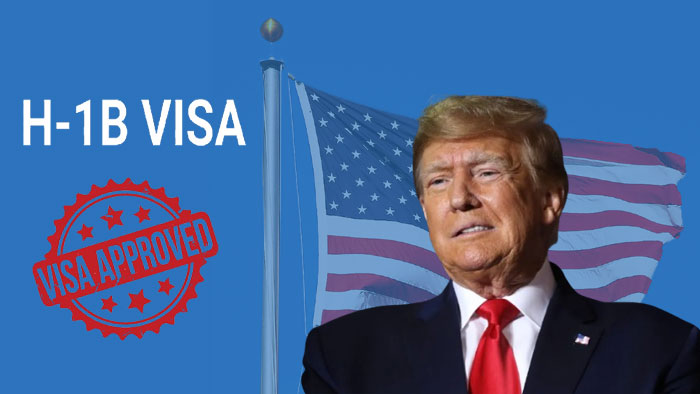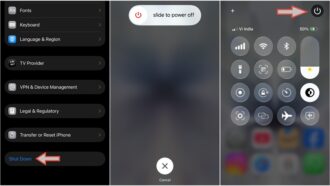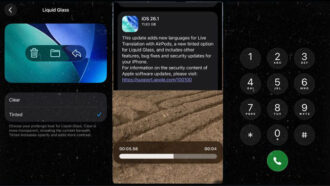The H-1B visa is a U.S. work permit that allows foreign workers with specialized skills to work in fields such as technology, engineering, medicine, and mathematics. The program issues 65,000 new visas annually, with a cutoff for an additional 20,000 individuals with advanced degrees from U.S. universities. Visa durations are typically three years, with subsequent renewals or green card applications possible. A recent decision, effective September 21, 2025, has significantly changed the H-1B system, making this topic important to you.
New H-1B Rule: What Else Has Changed?
The U.S. President has signed a proclamation requiring employers to pay a substantial fee of $100,000 for new H-1B applications from abroad. According to the administration, this move aims to prevent abuse of the system and ensure the safety of American workers. The rule will be in effect for 12 months and may be extended or lifted after review. This announcement also directs the country’s labor and immigration policies to review wage levels so that foreign workers don’t impact American wages.
Impact on Employers and the Tech Industry
Tech companies, especially large IT and outsourcing firms, have relied heavily on H-1Bs. Companies like Amazon, Microsoft, and MetaTrader hold thousands of H-1B approvals. The new fee will increase employment costs, and some companies quickly saw market impacts, with some stocks falling. From your perspective, this change could be seen in two ways. On the one hand, it is considered beneficial to American workers. On the other hand, it could hinder the movement of global talent and the opportunity for startups to gain experience.
Startups, Founders, and the Talent Pipeline
Many successful entrepreneurs came to the United States on H-1Bs, gained work experience, and then built their own startups. The rule will also impact those who initially join an employer and later want to start their own business. The visa-employer relationship and transfer process are already complex and could now become even more expensive. Because of this, some talented individuals may decide to pursue employment in other countries.
Regulatory Exemptions and Sensitive Issues
The announcement also provides for exemptions in cases of national interest. The Secretary of State and other departments can make decisions on a case-by-case basis. The Secretary of Labor has also been asked to revise prevailing wage levels to prevent foreign workers from undermining American wages. Some ambiguities remain in these procedures, such as whether the $100,000 fee will replace or be in addition to the existing fee and whether it will be a one-time payment or annual.
Impact on India and Other Countries
According to past data, India has been the largest beneficiary of H-1Bs. In 2024–25, India received approximately 71 percent of total approvals. China was the second-largest category. This new rule could put direct pressure on Indian IT professionals and the outsourcing sector. It would be helpful to know what options are available, such as hiring in other countries, remote work, or visa-alternative pathways.
The Gold Card Initiative and Long-Term Policies
The administration has also mentioned a Gold Card program. Under this program, some foreigners can obtain faster permanent status in exchange for a very expensive fee. This policy appears to be more competitive, as it prioritizes only those with higher salaries or investments.
The situation may not be clear to you, but it is certain that the H-1B structure will now be different. Companies will have to adjust costs and procedures. Finding alternative routes for workers, addressing visa regulations, and preparing employer documentation will be essential. A true assessment of the long-term benefits and drawbacks of the policy will only be possible after detailed guidelines are issued and a review is completed after 12 months.
Frequently Asked Questions (FAQ) about H-1B Visa
When did the new H-1B rule come into effect? The new rule took effect on September 21, 2025, and is valid for 12 months.
Q 1. Who does this fee apply to?
It applies only to H-1B petitions filed for workers arriving from abroad. It does not currently apply to H-1B holders already in the country.
Q 2. Is the $100,000 a one-time payment or an annual payment?
The announcement remains unclear. The administration has stated that this could be a one-time payment or an annual structure under consideration. Employers should pay attention to this.
Q 3. Can exemptions be granted in certain cases?
Answer. Yes. The Secretary of State may grant exemptions in cases deemed to be in the national interest.
Q 4. Will this halt existing hiring?
Answer. Immediate halts are not possible, but new hiring will be expensive, so companies may change their hiring strategies.
Q 5. How will it impact outsourcing firms?
Answer. Outsourcing and staffing companies may be most affected because they use H-1Bs extensively.
Q 6. Are there other options besides the H-1B?
Answer. Remote work, visa options from other countries, and schemes like the Gold Card could be potential options.
Q 7. What documents should the employer keep?
Answer. Employers must keep proof of payment, and the relevant department will verify it during the visa process.
If you would like, I have created a simple checklist for you on this topic that employers or applicants can use immediately to prepare for the new rules.





